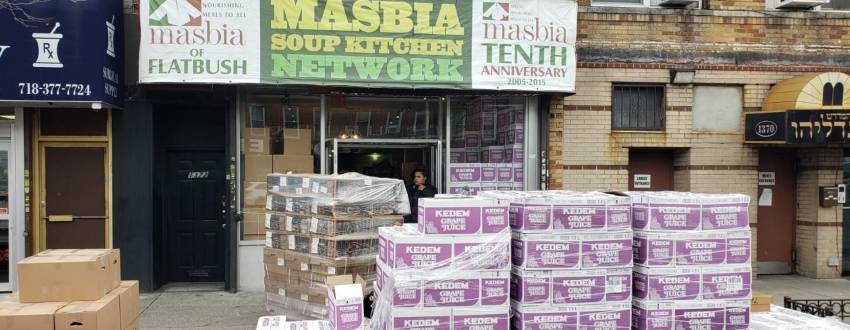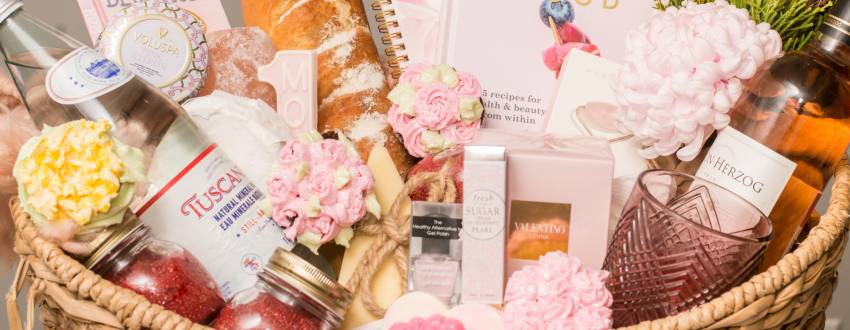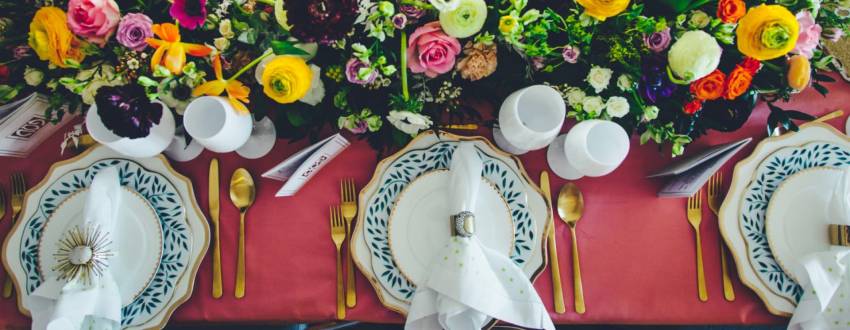I can’t wait to travel again. Even within New York City, I used to give tours in the morning and go to a different comedy show every night. I’d spend my afternoons writing at cafes or public libraries, wandering into bookstores and museums, or catching up with someone who happened to be in town. Having to put all that on pause hasn’t been easy.
And yet, I’ve had it pretty good. Sure, my jobs and most of my sources of income all shut down with the rest of New York City, but I’m fortunate to still have my health and to have found my footing with a new lifestyle working remotely.
It’s been a rough year, but I don’t feel like my time has been wasted. I was fortunate enough to be able to use the time to grow my online business, I finally sat down to write my first book, and I discovered countless new recipes.
It hasn’t been all sunshine and roses in my tiny Brooklyn apartment, but the most comforting thing for me has been realizing whenever I catch up with someone that I’m not alone in how I feel. And there are a lot of things that we’re all learning and realizing collectively.
I think we as a society have learned a lot from these unfamiliar times, and there are some parts of normalcy I hope we don’t return to…
Not Washing Hands (As Often)
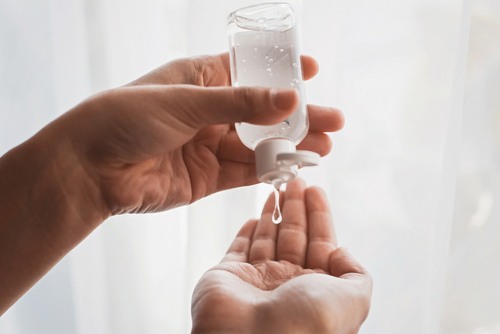
Don’t get me wrong, I used to wash my hands as much as any normal person, but now I wonder if that was enough. I appreciate that now that there seems to be hand sanitizer everywhere available to everyone. I gladly use it every chance I get, and I feel better knowing other shoppers are sorting through produce with clean hands.
I have such a habit of washing my hands more frequently now, and it’s made me more aware of personal hygiene in general. I’m not just concerned about being clean on the surface anymore, I’ve taken such an interest in learning about vitamins, probiotics, and above all else, fresh air.
Nearly a century ago during the Spanish flu pandemic, hospitals in Boston were so overcrowded that they started setting up open tents outdoors. It was believed at the time that nothing could be done to stop the deadly virus, but the Bostonians found that the patients and doctors working outside were somehow recovering faster or not contracting the flu at all.
Today we understand that ventilation, sunlight, and basic measures of hygiene are excellent tools for fighting illness. In contrast, viruses and bacteria thrive in poorly lit and poorly ventilated settings. Doctors say this explains why we tend to get sick in colder months – it’s not so much the cold temperature, but the fact that we spend more time indoors.
It’s still important to be mindful of social distancing, but I try to get outside for a walk as much as I can. It’s more than just a mental refresh between writing assignments – it’s good for overall health and being proactive about fighting illness.
Daily Commuting and Traffic
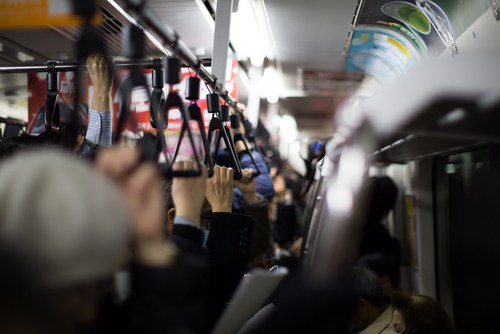
As much as I love traveling, I never loved commuting. A quick drive to the grocery store is one thing, and the subway is never that bad when you can find a seat. But I could do without being packed like a sardine on a local train or crawling across the freeway bumper to bumper. Especially not every day.
With so many people working remotely, the roads and the air are clearer. The trains run more smoothly. And people have more time to sleep in, to make themselves a nice breakfast, to not be stuck in a metal contraption for hours at a time on their way to work.
Before the pandemic I was constantly running from Brooklyn to Manhattan for doctor appointments, meetings with clients, auditions, interviews… Being able to do all those things remotely saves me so much time. I can get more done in a day; I have more time to cook and exercise; and not having to sit in a waiting room is the best of all.
That said, there are times you need to see a doctor face-to-face. Sometimes it’s nice to talk business over coffee. If “normalcy” meant we could only do things in-person, I hope going forward we will do things both remotely and in-person at our convenience. Having the option to go remote can free up a lot of space both on the roads and in our schedules.
The Wrong Side of Social Media

Is social media bad?
Before social distancing, I feel like everyone viewed social media and the internet as inherently dangerous. But this pandemic has shown us how much we truly rely on the internet for human connection.
Does that make social media a necessary evil?
The pandemic has taught me that depending on how I use social media, it can be helpful or harmful.
In the beginning of the pandemic, I was glued to Facebook, scrolling through bad news all day every day, and I didn’t realize the toll it was taking on my mental health, productivity, and friendships.
Being on edge, I found myself engaging in unproductive conversations. Whether I was trying to make a point, diffuse tensions between friends, or even share something funny, I didn’t feel like I was adding anything of value – at least not valuable enough to be worth running the hamster wheel of Facebook debates.
I still believe it’s important to stay informed and important to stand up for your beliefs, but at what cost?
The more time I spent wrapped up in the news or a discussion on Facebook, the less time I’d spend looking for remote work on LinkedIn, the less time I’d spend reading a book or trying a new recipe or enjoying a TV series.
I started forcing myself to limit my screen time. I almost immediately noticed a difference in how more relaxed I became – within two days my whole body felt less tense. But that wasn’t enough. Even if I was only checking Facebook once a day and arguing for half an hour, it could still ruin an evening or put me in a bad mood for an entire day.
On the other hand, watching educational videos on YouTube for hours made me feel inspired. I’ve been finding work opportunities on LinkedIn left and right. Now, there’s plenty of junk on YouTube, people argue on comment sections on LinkedIn too – the biggest difference lies in how I use these platforms. After all, I’ve found work opportunities through Facebook, too.
There’s something to be said about how the platforms are designed to be used, too. For example, LinkedIn and Facebook both collect and sell user data, but it seems to me that LinkedIn is using that data to understand and improve the job market, whereas Facebook is using their data to better understand how to advertise to its users… and I’m sure Facebook is aware that when emotions are high, people are more likely to donate or buy.
It’s possible to curate a healthy information diet on social media, just like it’s possible to go to the grocery store and only buy healthy food. And it’s possible to use Facebook for professional networking, just like it’s possible to make professional connections at a social event.
But just like grocery stores and social events, social media is rife with distractions that can deter you from making healthy decisions. You can avoid those distractions by making a grocery list or limiting how much alcohol you consume at a party, but how do you confront a social media algorithm that’s designed to keep you engaged?
It’s harder to navigate the pitfalls of social media because it’s still relatively new to society. I think the better we understand technology, the better we can use it. So I don’t think there’s anything inherently wrong with being on Facebook; a lot of people use it appropriately and have a great experience in support groups, playing games, and all sorts of things. But I felt like Facebook wasn’t bringing the best out of me or my family, so I deleted my Facebook. Happy to connect on LinkedIn.
Not Giving Ourselves the Benefit of the Doubt
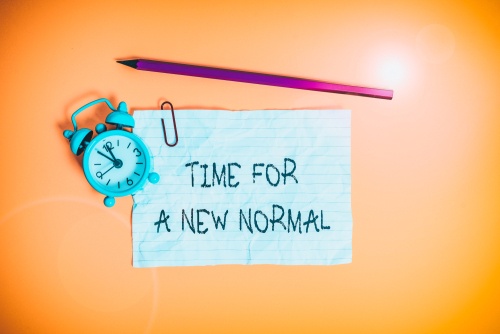
Tensions have run high, procrastination and depression has weighed on all of us, and I’ve been fortunate to have people in my life who constantly remind me to give other people (and myself) a break. It’s a global pandemic. We’re all coming to terms with a lot of change. It’s weighing on all of us.
Whether it’s our roommates, children, government officials, or even ourselves that we’ve been frustrated with, it helps to remember that we have all been put to the same test. Everyone is struggling with something, and we’re all doing our best.
Just as the same as we all struggled with the fallout of the global pandemic, we all struggle with being human. Nobody is perfect, and we still won’t be perfect when things go back to normal, but we can use the insight we’ve gained to embrace imperfection and give ourselves room to breathe through.
I don’t think that things will never go back to “normal.” Instead, let’s take everything we’ve learned from this time to create a better future together.



